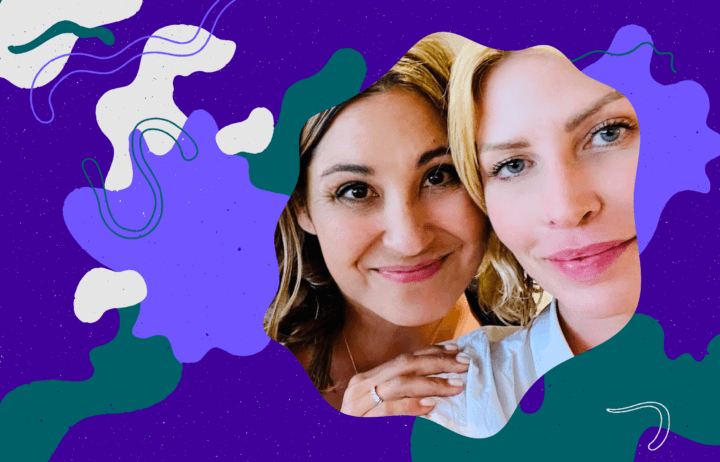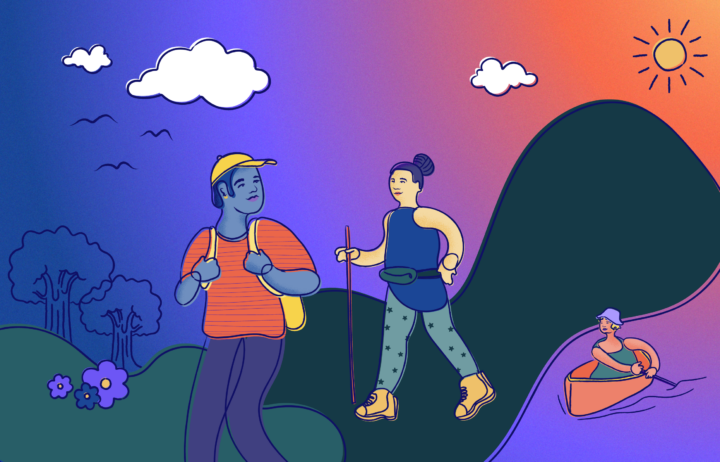Written by Sue Cardenas-Soto (they/them), Copywriter at The Trevor Project
For many, going back to school is as simple as packing their backpacks for the day. For LGBTQ+ young people, especially those who hold multiple marginalized identities, they have to pack a little more. They have to mentally prepare themselves to be misgendered; to be erased from bookshelves and history lessons; to potentially be met with violence, bullying, or ridicule. They carry an extra heaviness that others do not.
When I was in high school, I was quickly integrated into a group of writers and artists in the Spoken Word club. Spoken Word was a club full of mostly students of color and LGBTQ+ students, many of whom felt isolated from the greater student body and misfits in the greater arts community. In that small auditorium we used for meetings and rehearsals, we felt safe enough to express ourselves with reckless abandon. We felt safe enough to be real with each other: to come out, to talk about home and what’s really happening at school. We built systems of care for each other. Our twice-annual showcases featured young poets taking the stage and revealing their true experiences, sometimes shocking, but always passionately told.
For me, who struggled to fit in at school, Spoken Word club was a necessary refuge. I found dear friends and mentors who pushed me to tell the truth and make it sound beautiful. Eventually, I became a leader in the community, and it was incredibly gratifying for little-me to feel important. Being in SpoWo also gave me a very precious gift: a love for writing and reading, a gift I continue to cherish.
I think every young LGBTQ+ person deserves that kind of experience. Going back to school every year became bearable because I knew I had a family waiting for me. For LGBTQ+ young people who don’t have that community at school, going back in the fall can be anxiety-inducing and lonely.
Trevor’s 2023 National Survey on the Mental Health of LGBTQ+ Young People revealed how LGBTQ+ young people are really feeling at school. While 54% of LGBTQ+ young people identified school as a safe space, a majority of LGBTQ+ young people reported experiencing harassment at school because of their sexual or gender identity. That survey also reveals that LGBTQ+ young people who had access to affirming spaces, like school, reported lower rates of attempting suicide compared to those who did not.
So what can we do to lighten the load of some of our more vulnerable students? Be there for them, straight up. Make it known that you are an ally and an accomplice. Tell them that you are safe to come to. Be a part of facilitating spaces for LGBTQ+ young people specifically — and if there aren’t those spaces already, make them.
For me, the adults and teachers that made the most difference in my life were the ones that really showed their support up-front. Through Spoken Word, I was lucky enough to work with two mentors that really made me feel welcome and valued. They were open to having real, honest conversations. They fostered my creativity and pushed me to find the words to tell my stories. They even kept a record on the chalk-board for every “zinger” (funny joke or jab) that students made during meetings. That little act went a long way for many of us: it was proof that they cared.
If you’re in a position to impact the lives of young people, this is the perfect time to recommit to showing up for them. The Trevor Project has many resources to help you support LGBTQ+ young people in your life and facilitate those safe and necessary spaces. You could be the difference between a young person suffering and a young person actually being able to learn and enjoy their education. For me, it was those teachers, my peers in Spoken Word club, and my other friends I made in high school that helped me live through it. That is what lightens the load for LGBTQ+ young people: real-time proof that there are people in this world that really do care.
Sue Cardenas-Soto is a Copywriter at The Trevor Project, the leading suicide prevention and mental health organization for lesbian, gay, bisexual, transgender, queer & questioning (LGBTQ+) young people. If you or someone you know is feeling hopeless or suicidal, our trained crisis counselors are available 24/7 at 1-866-488-7386 via chat www.TheTrevorProject.org/Get-Help, or by texting START to 678-678.


